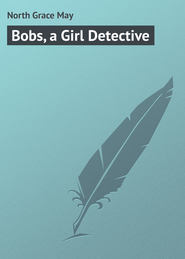По всем вопросам обращайтесь на: info@litportal.ru
(©) 2003-2024.
✖
Rilla of the Lighthouse
Настройки чтения
Размер шрифта
Высота строк
Поля
“Ez,” Doctor Winslow began, when the men had entered and closed the door, “have you seen a young boy, a chap about eighteen, sailing anywhere near Windy Island today? You’ve heard me speak of Dan Beavers, who was a college mate of mine. Well, this is his son. He came to Tunkett to try to regain his strength after a serious illness. Truth is, he ought not to have attempted to sail a boat alone. I wouldn’t have permitted it if I had been at home, but I had several calls to make across the marshes, and when I go there I make a day of it.”
The old sea captain was shaking his grizzled head as his friend talked. “No, Lem,” he replied when the other paused. “I reckon yer off’n yer bearin’s, I ain’t sighted a city chap cruisin’ ’round in these waters, not since the colony closed, but, for onct, I wish I had, bein’ as it’s some-un b’longin’ to yo’, mate.”
A cry from Rilla caused them all to turn and look at her as she stood in the open stair door. Running to Doctor Winslow, she caught his hand. “Uncle Lem,” she said, “I know where he is, if it’s a lad named Gene Beavers that yo’re wantin’.”
Then, seeing the inquiring expression on the face of Captain Ezra, she hurried on to explain: “His boat was wrecked, Grand-dad, that’s how he come to be here, but I didn’t dare to tell yo’, yo’re that sot agin city chaps. I didn’t do anythin’ that yo’ wouldn’t want me to, Grand-dad. I didn’t go near the cave where he was, not once in all the afternoon. Yo’ know I didn’t, for I stayed right with yo’ a-mendin’ the net.”
“I figger yo’ did the best yo’ could, fust mate,” the old man replied; “I cal’late it’s me that’s bungled matters, makin’ yo’ skeered to come and tell things straight out. But like’s not we’ll find the boy sleepin’ in the cave. Don’t let’s hang out distress signals till we’re sure we’re goin’ to sink.” As he talked he put on his slicker and cap, as the night wind was cold. Then, taking a lighted lantern, Cap’n Ezra, after bidding Rilla to liven up the fire and put the kettle on, opened the door and led the way to the top of the cliff. Making a trumpet of his hands, he shouted: “Ho, there, down below! Yo’re wanted up on deck.”
Then they waited, listening, but the crashing of the surf was all that they heard. One of the younger men who was used to scaling cliffs, however steep, climbed down to the ledge and held his lantern so that the small cave was illumined. After a moment’s scrutiny he called up to the anxious group: “Empty as an ol’ clam shell. Nothin’ in there but a box an’ a sail cloth that’s spread out flat an’ concealin’ nobody.”
When Muriel heard the men returning, she threw open the door and her eager glance scanned the group, hoping to find among them her new friend, Gene Beavers. “He wa’n’t thar, fust mate,” the old sea captain said gloomily, “an’ I figger it’s all my fault for bein’ so tarnal sot agin city chaps. I reckoned, one bein’ a scoundrel, they all was, like’s not.” Then, turning to Doctor Winslow, he added with spirit: “Lem, we won’t give up yit. We’ll throw out a drag net if need be. I’m goin’ along, wherever yo’ cruise to. Rilly gal can tend to the light for a spell. I couldn’t rest easy if I wa’n’t tryin’ to help locate the lad. The heft of this trouble comes from me being so tarnal sot about things.”
The physician placed a hand on his friend’s shoulder. “Look here, Ez,” he said, “neither you nor Rilla are to blame. The lad has not used good judgment, but older men than he is have failed in that, now and then. You mustn’t come with us. A heavy fog is rolling in and you might be needed any moment right here at the light. Some ship may send in a distress signal and Rilla is only a little girl, after all, only fifteen, and we mustn’t ask her to assume so serious a responsibility.”
While the physician was talking, the girl whom he had called “little” was pouring the tea she had made into four heavy cups and one of these she took to Doctor Winslow, saying, “Uncle Lem, drink this, please do, ’fore you go out agin into the wet fog, an’, too, thar’s a cup for each of you.”
The men seemed glad for the warmth of the beverage and then, when the cups had been drained, they started out, calling back that they would swing the red lanterns in a circle three times from the end of the town wharf if Gene Beavers was found that night.
When they were gone, Rilla removed her grandfather’s slicker and he sank down in his armchair and buried his face in his hands.
Muriel stood at his side, her arm about his neck, not knowing what to say.
Reaching up, the old man clasped the girl’s hand in his big brown one as he said: “Rilly gal, I figger yer ma was right, arter all. ‘Dad,’ says she, many’s the time, ‘it’s hate that brings the sorrow an’ trouble to the world an’ it’s love that brings in the happiness.’ Like’s not my little gal’d be livin’ now if I’d tried seein’ things her way; if I’d welcomed the man she wanted to marry, ’stead of hatin’ him an’ turnin’ him out. He went, when I tol’ him to, an’ he took my gal. I reckon it’s that same sort o’ hate that’s fetched this trouble to my ol’ messmate, Lem Winslow. I’m done wi’ it, Rilly gal, done wi’ hate, though I figger mos’ likely it’s too late.”
Muriel felt a hot tear splash on her hand. Pressing her fresh young cheek against the leathery one, she implored, “Don’ be talkin’ that way! How’s it too late, Grand-dad? We’ll begin all over, shall we, yo’ an’ me; we’ll begin lovin’ and not hate anyone at all, shall we, Grand-dad?”
The old man did not reply, but he held the girl’s hand in a tighter clasp. Then rising and going to the window, he stood for a moment looking out into the darkness, waiting until the circling light would reveal the dory containing the three men.
“That fog is so tarnal thick, they’re like to lose their bearin’s an’ thar’d be no savin’ ’em if they got drug into the surf at the pint.”
Then, after a moment of intense thought, the old man whirled, his face set with a new determination. “Rilly gal, I’m goin’ to do it,” he cried. “I’d oughtn’t to, but I’ll take the chance.” Then, noting the inquiring expression of the girl’s face, the old man explained: “I’m a-goin’ to hold the big lamp so ’twill shine steady toward town till they get into port. The Outer Ledge’ll have to stay dark for a spell. It’s a big chance. I’d ought not to take it, but, by giggers, I’m goin’ to!”
CHAPTER VII.
THE HEART OF CAP’N EZRA
Meanwhile the three men in the dory had pushed away from the small wharf on Windy Island and had started rowing into the thick, almost impenetrable blanket of fog, which, having swept in from the sea, had settled down over the inner harbor.
They could hear the melancholy drawn-out wail of the foghorn which was beyond the Outer Ledge. The two longshoremen who were with the doctor rowed toward the faint glimmer of red light, which could hardly be distinguished. In fact, there were times when the lights on the town wharf could not be seen at all, and once, when the roaring of the surf seemed nearer than it should be, they realized with sinking hearts that they had lost their bearings. Then it was that one of them uttered an exclamation of astonishment and alarm. “The big light!” he cried. “What’d ye s’pose has happened to it? Look ye! ’Tisn’t swingin’ like it should be. It’s hittin’ a course straight toward town.”
Doctor Winslow, at the rudder, turned and looked over his shoulder at the looming black mass that was Windy Island. “Ezra is doing it to guide us,” he said, “but he’s taking a big chance.” Then a sudden cry of warning: “Starboard, hard! We almost ran head-on into that old buoy that hasn’t anchored a fishing smack since Jerry Mullet’s boat went to the bottom.”
“The big light came jest in the nick o’ time, I swan if it didn’t,” Lute, in the bow, declared, as with a powerful stroke, he turned the dory so that it slipped past the buoy, barely scraping it.
“Straight ahead now. Give the fleet a wide berth,” the doctor called. The men were pulling hard when one of them stopped rowing and listened. “Doc Winslow,” he said, “tarnation take it, if I didn’t hear a ghost right then a-moanin’ in that old hulk of Sam Peters’. Like’s not it’s a warning for us of some kind.”
Being superstitious, the longshoreman was about to pull away harder than before, when the doctor commanded: “Belay there! Hold your oars! That’s not a ghost. There’s someone in that boat. More than likely it’s old Sam himself having one of his periodical spells. He won’t need help if it is, but I can’t pass by without finding out what is wrong. Thank heaven the light is steady, if all’s well on the outer shoals.”
It took but a moment, the fog being illumined, for the dory to draw up alongside of the boat that belonged to the frequently intoxicated fisherman Sam Peters. Not a sound did they hear as they made fast.
“I reckon ’twa’n’t nothin’, arter all.” Hank Walley was eager to return to shore. “Like as not ’twa’n’t.”
Doctor Winslow listened intently. He, too, was anxious to reach the home port, knowing that, not until then, would his friend Captain Ezra start the big light swinging on its seaward course; but he lingered one moment. “What ho! Sam there?” he called. But there was no reply. The good doctor was about to give the command “Shove off. Get under way,” when the sharp eyes of the youngest man, Lute, noted a movement of some dark object he had supposed was furled sail. Instantly he had leaped aboard the smack. Holding his lantern high, he uttered a cry that brought the doctor to his side. “By time!” Lute shouted. “It’s the boy himself, but if he ain’t dead, he’s durn close to it.”
It was indeed Gene Beavers, who, after resting a while on the cask-like buoy, had managed, with almost superhuman effort, to climb aboard the old fishing boat. Then he had lost consciousness; in fact, his breathing was so slight that the words of the longshoreman seemed about to be fulfilled.
The doctor did what he could to revive the lad; then wrapped him in an old sail cloth.
Ten minutes later, Rilla, standing by the side of Captain Ezra at a window in the tower, uttered a glad cry. “They’re swingin’ ’em, Grand-dad. They’re swinging the two red lights! They’ve found him. They’ve found Gene Beavers.”
“God be thanked!” the old man said, as he started the big lamp turning on its usual course. The fog had lifted out at sea and he scanned the dark waters anxiously, eagerly. It had been a tremendous chance that he had taken, and none but his Creator knew how constantly he had been praying to the One who rules the sea that all might be well. It was a strange thing for Captain Ezra to pray, but it seemed easier since hate had been banished from his heart. Muriel noticed a new expression in the face of the old man when, the next morning after breakfast, he said to her, beaming over his spectacles: “Put on yer Sunday riggin’s, Rilly gal. You’n me air goin’ to cruise over to Tunkett an’ find out if that city fellar is shipshape an’ sailin’ on even keel.”
The girl went around the table, and stooping, she pressed her warm young cheek against the wrinkled, leathery forehead.
The old man reached for her hand and held it in a firm clasp. Neither spoke, but both knew that, at last, the hatred of many years had left the heart of Captain Ezra.
CHAPTER VIII.
A SECRET TOLD
Doctor Winslow was just leaving the room of his patient when he heard a familiar voice in the lower hall. Hurrying down the wide stairway, he saw standing near the door Cap’n Ezra with Muriel at his side.
“How’s the lad comin’?” the keeper of the light asked eagerly, when greetings had been exchanged and the story of the finding of Gene had been told briefly.
“He’ll pull through, I hope and believe,” the doctor replied. “He is sleeping now and since he is so thoroughly exhausted he may sleep for a long time, but when he has recovered enough to sit up, I’ll send over to the island for you, Rilla, if your grand-dad will permit you to come. Sometimes pleasant companionship does more than medicine to help young people to recuperate.”
“I’d like to come,” Muriel replied almost shyly, and yet eagerly. Then her hazel eyes were lifted inquiringly. “May I, Grand-dad?”
It was a hard moment for the old man who had been hating city folks for many years, but he hesitated only a second, then he said: “Lem, I sort o’ feel as all this has been my fault and if yo’ think the boy’ll get on even keel quicker if fust mate here is on deck, now and then, yo’ can count on it, Rilly gal will come.”
Doctor Winslow held out his hand. “Thanks, Ezra,” he said hastily. “You’re more like what you used to be long ago and I’m mighty glad to see it.” Then in an earnest tone, he added: “Gene will take the place to Muriel of the older brother that every girl in this world ought to have, some one near her own age to fight her battles, to protect her when the need arises. That’s the sort of a friend Gene will be to your little girl, Ezra. I’ll give you my word on it, because I know him, as I knew his father before him. A finer man never lived, and like the father is the son.”
When Cap’n Ezra and Muriel were again on the main road, the girl said, “Grand-dad, bein’ as we’re in Tunkett, let’s go over and s’prise Uncle Barney.”
When Rilla had been a very little girl, at Doctor Winslow’s suggestion, she had adopted that good man as an uncle, but when Captain Barney heard her prattling “Uncle Lem” he declared that he wasn’t going to be left out of the family circle as far as she was concerned, and from that day the kindly old Irishman had been proud indeed to be called “Uncle Barney” by the little maid who was the idol of his heart.
They found the fisherman sitting in the sun in front of his cabin. He was whittling out a mast for a toy schooner that he was making for Zoeth Wixon, a little crippled boy who lived in the shack about an eighth of a mile farther along on the sand dunes.
Captain Barney looked up with a welcoming smile. Indeed his kindly Irish face fairly beamed when he saw who his visitors were. Rising, he limped indoors and brought out his one best chair, a wooden rocker with a gay silk patchwork tidy upon it.
All of the fisherfolk in the neighborhood had put together the Christmas before and had purchased the gift for the old bachelor, who was always doing some little thing to add to their good cheer.
“His house is that empty lookin’, with nothin’ to set on but boxes and casks,” the mother of little Zoeth had said, “an’ he’s allays whittlin’ suthin’ to help pass the time away for my little Zo, or tellin’ him yarns as gives him suthin’ to think about fo’ days. I’d like to be gettin’ Cap’n Barney a present as would make his place look more homelike.”
“So, too, would I,” Mrs. Sam Peters had chimed in. “When my ol’ man was laid up for two months las’ winter, like’s not we would have starved if it hadn’t been for the fine cod that Cap’n Barney left at our door every day, an’ fish bringin’ a fancy price then, it bein’ none too plenty.”
When these women told their plan, it was found that all the families scattered about on the meadows near the sea had some kindness of Cap’n Barney’s to tell about, and when the donated nickles and dimes and even quarters were counted, the total sum was sufficient to purchase a rocker in Mis’ Sol Dexter’s store. True, it had been broken a little, but Sam Peters, having once been ship carpenter, soon repaired it until it looked like new.









